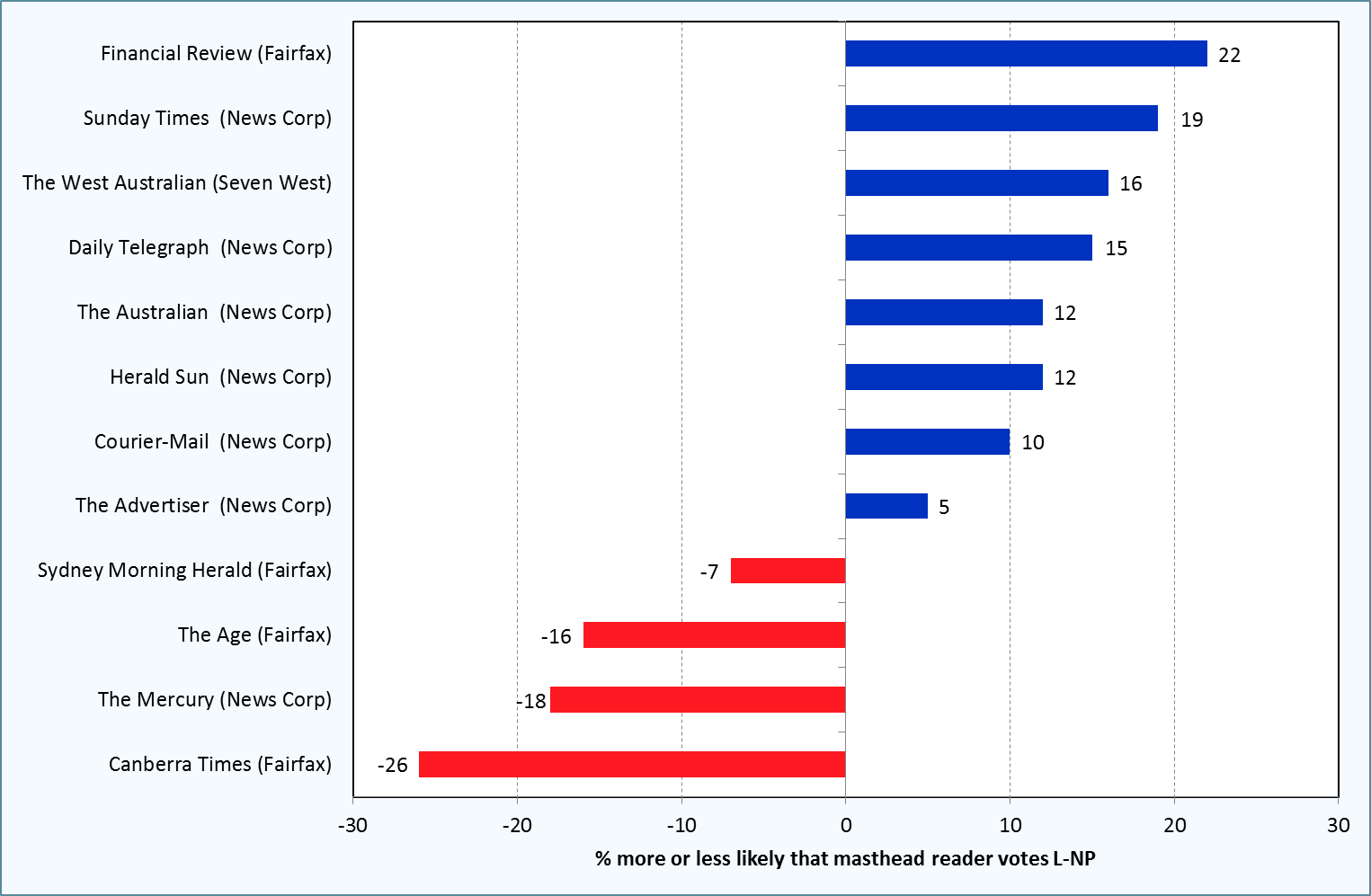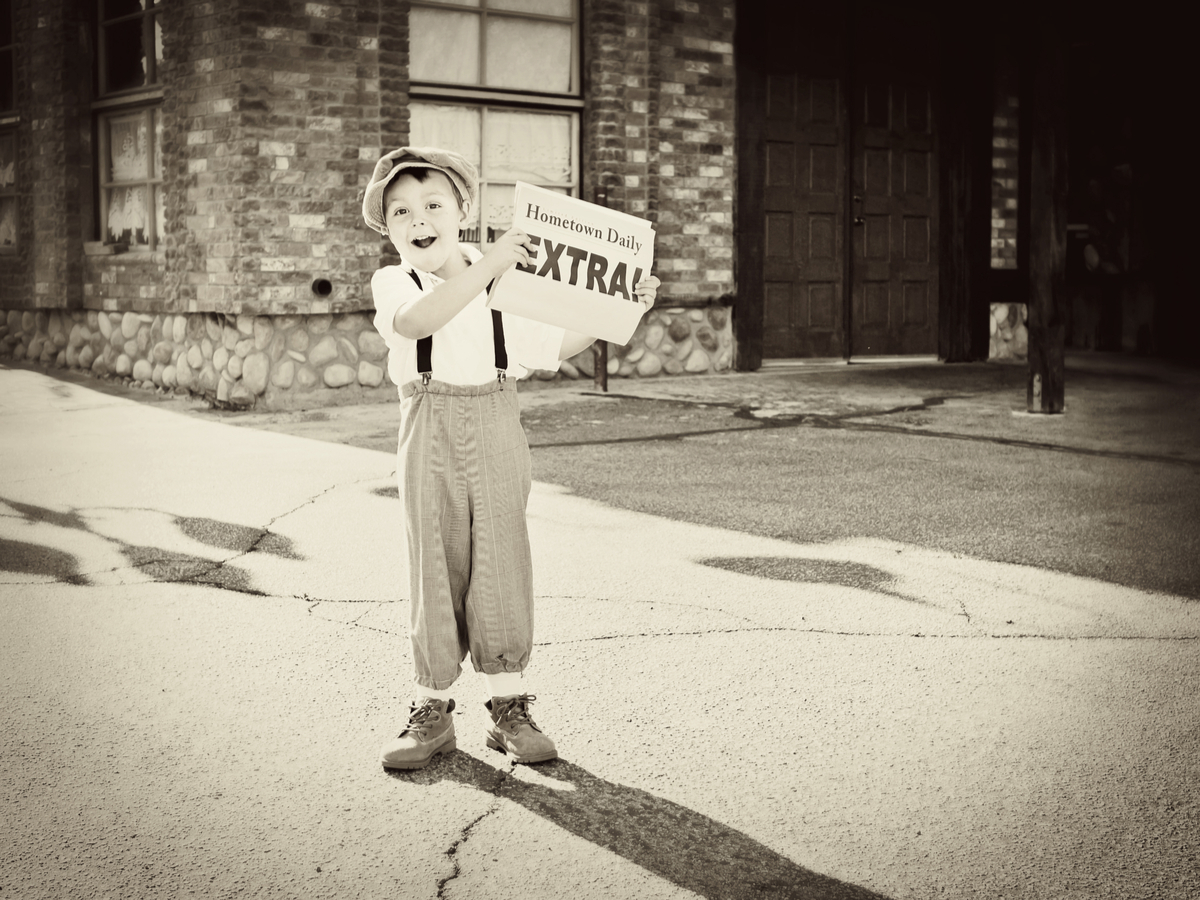No matter how much rhetoric the media landscape spin on media bias, leaving the assumption that most media are holistically balanced, they cannot escape this fact: All media are biased.
The simple argument here would be that all media are different and they appeal to different demographics. Especially political. I mean, compare the Facebook comments on political stories run by The Australian and Sydney Morning Herald. Seriously, go do it now. Here’s the link to The Australian Facebook page and here’s another link to Sydney Morning Herald Facebook page.
See the difference? You don’t attract ring-wingers for no reason, same with attracting left-wingers. News corporations essentially are just like any other business: They need to target a niche market and give them the stories they want. The stories they write and the way they write it can easily reveal the way they lean. Which is why you’d never see a story praising the Greens in The Australian. On that note, copy and paste: “site:theaustralian.com.au greens” into google right now and look at the results.
And for comparison, try this one: “site:abc.net.au greens”.
But all that is simple evidence. The better evidence lives here in this hyperlink, where Roy Morgan Research curated a media credibility survey somewhere in the previous decade. In it, it found that “55% of journalists polled describe themselves as left wing… 36% put themselves in the centre, while only 9% describe themselves as conservative or right wing.”
In 2013, Roy Morgan Research posted a press release outlining the political profiles of newspapers. It found that readers of the Financial Review (via print, online or app) in an average week were 22% more likely to vote Liberal than the Australian average.
“There is a distinct correlation between the tone and content of newspapers and the political leanings of its readers,” Michele Levine, Roy Morgan Research CEO, said.
“This is most apparent in cities where voters have a choice of either a local Fairfax or News Corp daily paper.”

Source: Roy Morgan Single Source (Australia) July 2012 – June 2013.
On the other side of the fence, a “large majority” of Australians in 2007 considered the media as “often biased”.
Over 85% of Australians believed newspaper journalists were often biased, 74% said the same for TV, and 69% said the same for talk-back radio announcers.
“Being provocative is a mandatory characteristic for journalists,” said Gary Morgan, Executive Chairman of Roy Morgan Research. “So it would not disappoint John Laws (23.5%) and Alan Jones (20.5%) that a significant number of Australians believe they are ‘often biased’.
“In their home state of New South Wales an even larger proportion (both 29.5%) believe they are ‘often biased’. Laws and Jones will be hoping for an even higher result in the next Roy Morgan image of the media survey!”
Take note of that last sentence. Simply because it’s not just Jones and Law hoping to be talked about. When you take into consideration the shaky ground journalism is on, with the depletion of newspapers and the saturation of online news, along with newfound competition, you can’t really blame them for being a bit provocative. How else do you expect them to break through all the noise? It pays to grab people’s attention!
And biased media isn’t really a bad thing. And while every news outlet as a whole are biased, they all must abide by media law and ethics, which outlines protocols making sure that every story they write is balanced and gets all sides. Of course, though, they do get to control was stories they publish in the first place. What’s also worthy to note is that the political spread of the media means a diverse range of stories, and that, in turn, means no story is lost. Which means while the Greens are held accountable by conservative media, the Liberals will be held accountable by left-wing media.
So where does that leave you, the avid reader? Well, hopefully not in a filter bubble, because that is what made us so naive to think Hillary would beat Trump. Unfortunately, with this political spread of media, many will only seek out their own political side. And that’s where the insidiousness of algorithms come in.
To learn how to burst your filter bubble and break your algorithmic addiction, click here.


